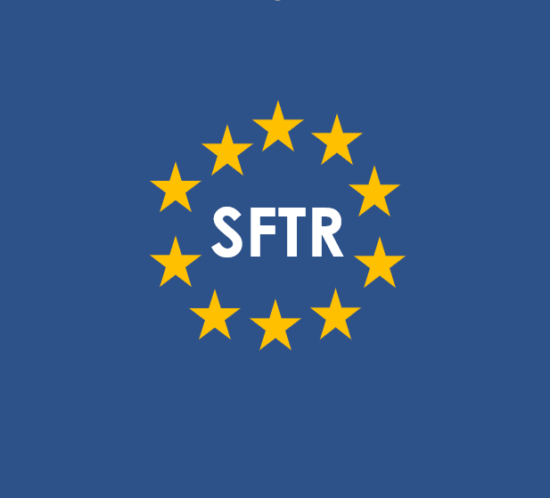SEC Offers Additional Relief for Advisers Impacted by Coronavirus
The SEC has made several COVID-19 related announcements this week pertaining to investment managers that offer relief from routine regulatory obligations.
First, the SEC has issued relief in filing due dates and delivery requirements related to the Coronavirus (COVID-19) and the current market conditions. This will extend the reporting deadline 45 days for Forms ADV, PF, N-CEN and N-PORT, but only as needed because of the Coronavirus. The SEC Press Release announcing the exemptive order can be found by clicking here. The exemptive relief only applies if a firm cannot file because of the Coronavirus. Firms that are impacted will need to notify the regulators and make postings on their websites of the impact. There is not an automatic deferral of the filing obligations for those not impacted.
Second, the SEC published FAQs to support work-from-home practices. In one FAQ the SEC indicated that working from home temporarily does not trigger a need to amend Form ADV, Item 1.F as long as employees are doing so as part of the firm’s business continuity plan.
In addition, two custody FAQs provide relief for firms that may not otherwise be able to meet the custody rule requirements in certain circumstances because of COVID-19. The SEC stated that if an adviser’s personnel was unable to access mail or deliveries due to the firm’s business continuity plan in response to such circumstances, the Division of Investment Management would not consider the advisers to have received the assets at that location until firm personnel are able to access the mail or deliveries there. For more, see Questions II.1 and VI.9 here.
Third, the SEC has postponed the National Compliance Outreach Program Seminar in Washington, D.C. scheduled to take place on April 21, 2020, saying it will attempt to reschedule the event later in the year based upon prevailing conditions.
Fourth, the SEC has also announced extended comments periods for rulemaking in the proposal stage. Rules impacting investment managers include (A) Use of Derivatives by Registered Investment Companies and Business Development Companies; Required Due Diligence by Broker-Dealers and Registered Investment Advisers Regarding Retail Customers’ Transactions in Certain Leveraged/Inverse Investment Vehicles, File No. File No: S7-24-15, Release Nos.: 34-87607, IA-5413, IC-33704; and (B) Amending the “Accredited Investor” Definition, File No: S7-25-19, Release Nos.: 33-10734, 34-87784.
Fifth, and finally, reports from the field indicate that SEC examiners are working to see if they can sort out video conference capabilities for examinations. They need to meet quotas, too.
Good luck and be safe, everyone. At CSS, we are here to help you meet your regulatory requirements, so if you need our assistance, please contact us.
SFTR Phase 1 Delayed Three Months as ESMA Responds to Industry Requests
The capacity of financial firms to comply with the upcoming go-live of SFTR reporting obligations has been critically compromised by the escalating COVID-19 pandemic. According to The International Securities Lending Association (ISLA) and the International Capital Market Association (ICMA) a delay is now necessary. The two industry bodies sent a joint letter to the European Securities and Markets Authority (ESMA) on 16 March requesting “ESMA to initiate, as a matter of urgency, the procedure for obtaining a formal delay of the SFTR reporting go-live date,” suggesting that the implementation of the first phase be pushed back to October 11, 2020.
In support for the request of a delay, members of ISLA and ICMA have provided actual examples of challenges that COVID-19 related measures pose to SFTR implementation projects:
- The impact on human resources, and the increasing number of staff that might be on sick leave or need to care for their families.
- Business continuity planning impacts their ability to effectively manage implementation and testing issues. A reliance on remote online access is resulting in technical issues further delaying the implementation of any change program.
- The move from change projects to daily operations are also largely aggravated by the current market situation, with extreme market volumes and volatility. Now firms need to focus on the day-to-day business to ensure core business continuity and client support.
On March 19, ESMA made a public statement that they are moving the implementation of the first phase of SFTR to 13 July 2020. This means that credit institutions, investment firms, CCPs and CSDs and relevant third-country entities will start reporting as of this date.
SFTs with members of ESCB are exempted from reporting under Article 4 of SFTR, however, these SFTs are reportable by investment firms as of 13 April 2020 under Article 26 of Regulation 600/2014 as specified by second subparagraph of Article 2(5) of Commission Delegated Regulation (EU) 2017/590. These trades are still expected to be reported to relevant NCA under MiFIR. ESMA stated that NCAs are expected to not prioritize supervisory actions in relation to these trades until 13 July 2020.
ESMA states that it ”continues monitoring closely the implementation by the relevant market participants as well as the impact of the relevant measures taken with regards to COVID-19 to ensure alignment of SFT reporting requirements and supervisory practices in the EU .” It is possible that there will be further delays if the COVID-19 pandemic continues to escalate in the coming months.
As stated in Article 33(2)(a) SFTR, the phased approach was designed to ease the implementation for firms not as frequent users of SFTs and not as heavily regulated as the banks going live in phase one. In a scenario with further delays, it is unclear what will happen with the original phased-in approach.
Regardless, if there are further delays for subsequent phases or not, working towards the original deadline should be encouraged. If a delay comes, it will give firms the ability to properly test their solutions.
How prepared are you for SFTR implementation? Take our readiness survey here.
Pandemic Puts Business Continuity Planning to the Test; Regulators Take Notice
The rapid expansion of the novel coronavirus and the COVID-19 pandemic has caused extreme stress if not panic throughout the financial markets, with ripple effects to many if not all financial advisory firms. Solid Business Continuity Plans (“BCPs”) can help financial advisers stabilize their operations and cope with this dramatic change of circumstances. Here are some reminders and simple yet effective tips for those who find themselves dusting off their BCPs.
Although investment advisers are not subject to an express business continuity rule under the Investment Advisers Act of 1940 or similar statute, and the SEC previously withdrew its proposed business continuity rule, business continuity plans are an integral part of an investment adviser’s fiduciary duty to clients (business continuity planning is noted as part of a compliance program under Advisers Act Rule 206(4)-7, albeit in broad strokes). An adviser’s BCP does not need to cover every possible event or scenario, but a good one is designed to address reasonably foreseeable events. Current events have now rendered health epidemics and pandemics as reasonably foreseeable events.
FINRA, via FINRA Rule 4370, specifically requires broker-dealers to create, maintain, and annually review their respective BCP. On March 9, 2020, FINRA issued Notice to Members 20-08 (“Pandemic-Related Business Continuity Planning, Guidance and Regulatory Relief”) in which it counseled broker-dealers to consider pandemics in their business continuity planning and provided guidance on pandemic preparedness and overall BCP diligence. The Notice was important for broker-dealers—and investment advisers would be wise to review it when considering how to mitigate operational challenges and other effects of this current crisis. See also Regulatory Notice 09-59.
Specific pointers:
- Check whether your BCP expressly addresses pandemics or similar health issues. Often, a BCP will include a bullet list of foreseeable risks it is designed to address, or a list of objectives which may include providing for the safety of personnel and the protection of critical data. If your BCP does not specifically mention them already, consider adding pandemics, epidemics, outbreaks, and similar health-related issues reasonably likely to impact operations.
- Make sure the BCP stays current with contact information for all staff and service providers—and emergency contact numbers for all staff.
- Delineate what systems and operations can and will continue in the event that offices need to be closed. The use of cloud-based systems has many advantages but, remember, cloud-based systems also introduce the risk of inadequate security. Caution is essential around mobile device management, cybersecurity, data flow, multiple wireless connections, and more.
- In general, maintain in a secure and accessible location:
- current contact information for clients and investors
- the necessary login information for regulatory filings, which may or may not be given a reprieve from filing deadlines in the event of a pandemic or other crisis
- Be able to easily and securely modify your website to, for example, be able to provide critical communications to clients and investors in the event you cannot reach them all as quickly as may be needed with direct and individualized communication.
To the extent your BCP does not address all the protocols for this specific COVID-19 event, create a BCP Supplement, COVID-19, 2020. Document the additional steps you are taking. For example:
- Document the responsive action items such as maintaining available supplies of disinfectant and sanitizer in the office and the authority for defining and suspending essential and non-essential travel.
- Document the members of an “Emergency Response Team” if not already spelled out in the BCP or if a smaller team can work more efficiently and effectively.
- Obtain backup phone numbers from employees if available (landlines for example).
Remember, hackers and others can take advantage of times of stress and chaos. Remind staff of this and that appropriate verifications must be made before clicking on links, sending documents, and of course transferring funds or securities.
Testing your remote access capabilities before a business continuity event arises is key. Some VPNs may not be able to handle all of your staff connecting simultaneously, whether due to the number of connections or bandwidth concerns. Some staff may not have remote access capabilities at all, however, are nonetheless essential to your operations. Those who have not previously tested their BCP are now faced with a live event. But, there is still opportunity for you to engage effective emergency protocols with the right tools and insight. Please contact us at CSS if you would like further assistance.
A final point: The SEC and other regulators likely will examine how you have handled this situation, just as they did after Hurricane Sandy. Following the SEC’s “sweep” examinations of Hurricane Sandy responses, the SEC issued a Risk Alert outlining what firms did well and what were the weaknesses. Review that alert now, so that history can advise the present and former weaknesses can turn to strength.
We hope you and your families stay well.
SEC Continues Scrutiny of Private Fund Cross Trades
The SEC continues to scrutinize principal and cross-trade transactions in the private fund world. Are such trades illegal? No. In fact, with sufficient disclosures (and supervisory controls, of course), a private fund adviser can conduct principal and cross trades, which can offer certain benefits to the funds under management. For example, cross trades can be utilized to rebalance funds and save on transaction costs.
So, why is the SEC concerned with cross trade transactions? Cross trading raises various compliance risks, including those associated with disclosure, best execution, and conflicts of interest.
For example, in short, the SEC will scrutinize cross trades as the practice gives rise to the opportunity to favor one fund over another by, for example, moving a position, perhaps a losing position, to another fund to improve the return of the original fund. This creates a conflict, since the transaction benefits the investors of one fund at the expense of investors in the other fund. Best execution is always a concern also, as the pricing for any cross trades must be competitive with a view to the market for the security traded.
Illustrative of the SEC’s focus on this topic, is a recent SEC enforcement action, dated February 24, 2020, In the Matter of Lone Star Value Management LLC and Jeffrey Eberwein, where the SEC cited 19 instances of principal cross trades between two funds managed by Lone Star and two transactions between a Lone Star fund and a separately managed account. The SEC Order pointed out that “These 21 trades were made on a principal basis because Eberwein’s ownership stake in the Lone Star fund involved in each of these trades was more than 35% during the relevant time period. Lone Star failed to disclose in writing that it engaged in these principal transactions and did not obtain client consent before the completion of each of the transactions as required under Section 206(3) of the Advisers Act.”
The SEC Order continued by outlining disclosure requirements for such transactions:
“Section 206(3) of the Advisers Act prohibits an investment adviser from engaging in or effecting a transaction on behalf of a client while acting either as a principal for its own account, or as broker for a person other than the client, without disclosing in writing to the client, before the completion of the transaction, the adviser’s role in the transaction, and obtaining the client’s consent.”
As is often the case in enforcement actions, the SEC went on to cite concerns with the firm’s written policies and procedures, specifically Lonestar’s failure to implement written policies and procedures “reasonably designed to prevent violations of the Advisers Act and the rules thereunder, a violation of Section 206(4) of the Advisers Act and Rule 206(4)-7” (the compliance program rule). Clearly, just having the right policies and procedures in place isn’t enough; a firm must also enforce them.
Action items:
- First, if your firm engages or may engage in principal or cross trades, ensure that you have drafted written policies and procedures to address oversight, including the disclosure requirements relating to cross and principal trades, pursuant to Section 206(3) of the Advisors Act. In the private fund world, get approval from your limited partner advisory committee involved prior to effecting principal transactions, agency cross trades (or other affiliate transactions that give rise to conflicts of interest) to make timely disclosure and consent quicker and more practical. And don’t overlook documentation (perhaps, in an investment memorandum) of such transaction decisions.
- Next, to monitor for cross and principal trades, establish a surveillance system that tests for cross-trading activity by conducting a review of transactions in the same security over a period of time, looking both at the buy and sell prices and the amount of any commission or markup.
- Incorporate this issue into your ongoing training program; discuss an SEC case (including disciplinary measures) to highlight regulatory concerns on this topic and you will most certainly garner staff attention during the training presentation.
- Finally, best practice is to further review this topic as part of your firm’s annual review.
If your firm needs assistance in understanding these transactions and your obligations for such, contact us.
Several States Coordinating Regulation Best Interest Pre-Implementation Exam Survey
While the SEC moved full force in adopting Regulation Best Interest and Form CRS, state regulators were fairly silent on what steps they would take pertaining to this topic. It seems the sleeping bear has awoken early this winter with the recent multi-state survey being sent to state-registered investment advisers. Many states are conducting a coordinated examination survey of registered firms and their business practices prior to implementation of Regulation Best Interest. The participating states have entered into an agreement to share with each other the results of the examination survey and any records otherwise obtained.
The survey, which is mandatory in many states, includes questions such as:
- What is the firm’s total number of retail customers,
- What is the firm’s revenue,
- Does the firm maintain E&O insurance,
- Use of the title of “advisor” or “adviser” in marketing materials, disclosures, customer agreements, websites, or as a job title on business cards or in any form of social media to describe itself or its registered agents/ representatives while operating in the capacity of a broker-dealer; and
- A swam of questions on the types of products offered to clients.
The survey asks a significant amount of questions related to product-specific guidelines and the training provided to staff when an adviser participates in the sale of annuities, non-traded REITS or private securities. The state regulators are curious about disclosure to clients, the timing of disclosure, any sales quotas related to products, etc. Importantly, the survey asks a significant amount of questions about the information gathered on investor profile forms or questionnaires, thus a good reminder to state-registered firms to be maintaining those type of documents.
Here’s a sampling of some questions from the survey:
- “In relation to the availability of lower-cost, suitable options outside the firm’s platform, please indicate whether it was firm policy or practice to affirmatively discuss costs with customers at the time of the recommendation of whether to buy, hold, or sell a security.”
- “Please indicate whether the firm has a conflicts of interest register or catalog.”
- “Do you maintain product-specific policies and procedures and share-class policies?”
If you find yourself struggling to figure out how you would have responded to these questions, you may want to consider reaching out to CSS for compliance guidance. Our Retail Division specializes in the ever-increasing state regulations. Or you can hide in your den and wait for spring to see what the state regulators bring.
As Form CRS Compliance Date Nears, Approaches to Meet Challenge Coming Into Focus
Form CRS, the sleeping giant, awakens!
Investment advisers and broker dealers are turning their attention to planning for Form CRS, training and developing procedures to implement the SEC’s new rule and related interpretive releases. CSS developed Form CRS Automator, a software tool, to streamline the process. It allows teams to quickly produce compliant and accurate information while correctly interpreting the SEC’s strict Form CRS instructions – saving valuable time and reducing risk of non-compliant content that does not align with other regulatory filings.
“Where to start?” and “What are other firms doing?” are frequent questions we hear from firms. Providing a compliant framework, with built-in mandatory aspects embedded, is a real life saver. Frequent questions roll in daily, such as questions related to disclosure documents which can be embedded, as well as challenges surrounding Conversation Starters.
How does a rep respond to whether they have disciplinary history responses and for what type of conduct? Another highlighted concern is establishing oversight controls. The new rules require training of financial professionals, updating procedures, and getting it all in place by June 30—knowing that this is a focus topic of the SEC’s and FINRA’s 2020 priorities. The Form CRS Automator tool and related services offered by CSS make the new requirements manageable.
Need help? Here are a few great resources:
- Register for our free Feb. 26 ComplianceCast webinar: “The Ultimate Guide to Form CRS & Sneak Peek at the Market’s First Solution,” by clicking here.
- Check out Form CRS Automator, the market’s first software tool designed for the challenge.
- Contact us for additional Form CRS help.









